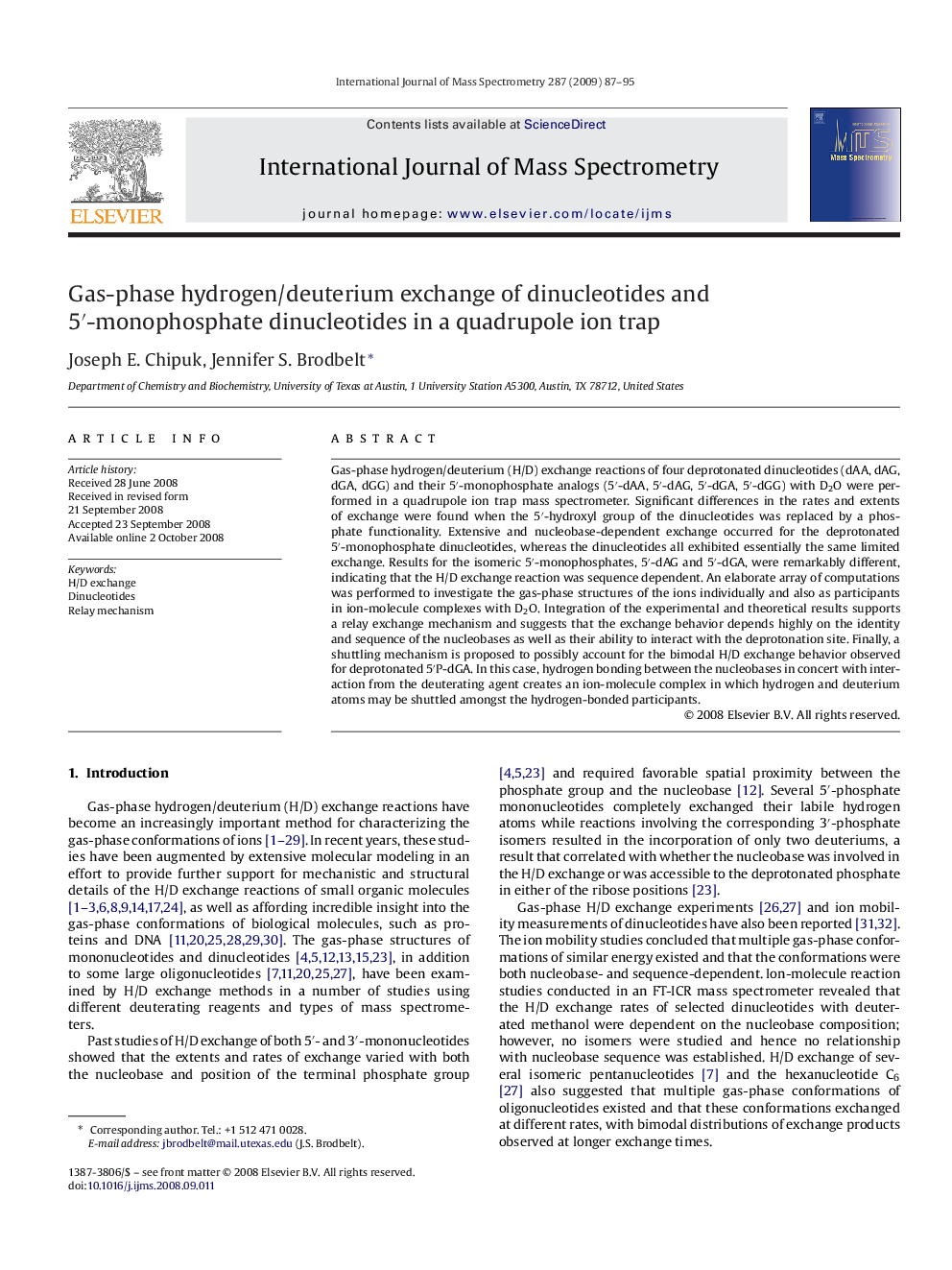| Article ID | Journal | Published Year | Pages | File Type |
|---|---|---|---|---|
| 1193227 | International Journal of Mass Spectrometry | 2009 | 9 Pages |
Abstract
Gas-phase hydrogen/deuterium (H/D) exchange reactions of four deprotonated dinucleotides (dAA, dAG, dGA, dGG) and their 5â²-monophosphate analogs (5â²-dAA, 5â²-dAG, 5â²-dGA, 5â²-dGG) with D2O were performed in a quadrupole ion trap mass spectrometer. Significant differences in the rates and extents of exchange were found when the 5â²-hydroxyl group of the dinucleotides was replaced by a phosphate functionality. Extensive and nucleobase-dependent exchange occurred for the deprotonated 5â²-monophosphate dinucleotides, whereas the dinucleotides all exhibited essentially the same limited exchange. Results for the isomeric 5â²-monophosphates, 5â²-dAG and 5â²-dGA, were remarkably different, indicating that the H/D exchange reaction was sequence dependent. An elaborate array of computations was performed to investigate the gas-phase structures of the ions individually and also as participants in ion-molecule complexes with D2O. Integration of the experimental and theoretical results supports a relay exchange mechanism and suggests that the exchange behavior depends highly on the identity and sequence of the nucleobases as well as their ability to interact with the deprotonation site. Finally, a shuttling mechanism is proposed to possibly account for the bimodal H/D exchange behavior observed for deprotonated 5â²P-dGA. In this case, hydrogen bonding between the nucleobases in concert with interaction from the deuterating agent creates an ion-molecule complex in which hydrogen and deuterium atoms may be shuttled amongst the hydrogen-bonded participants.
Keywords
Related Topics
Physical Sciences and Engineering
Chemistry
Analytical Chemistry
Authors
Joseph E. Chipuk, Jennifer S. Brodbelt,
